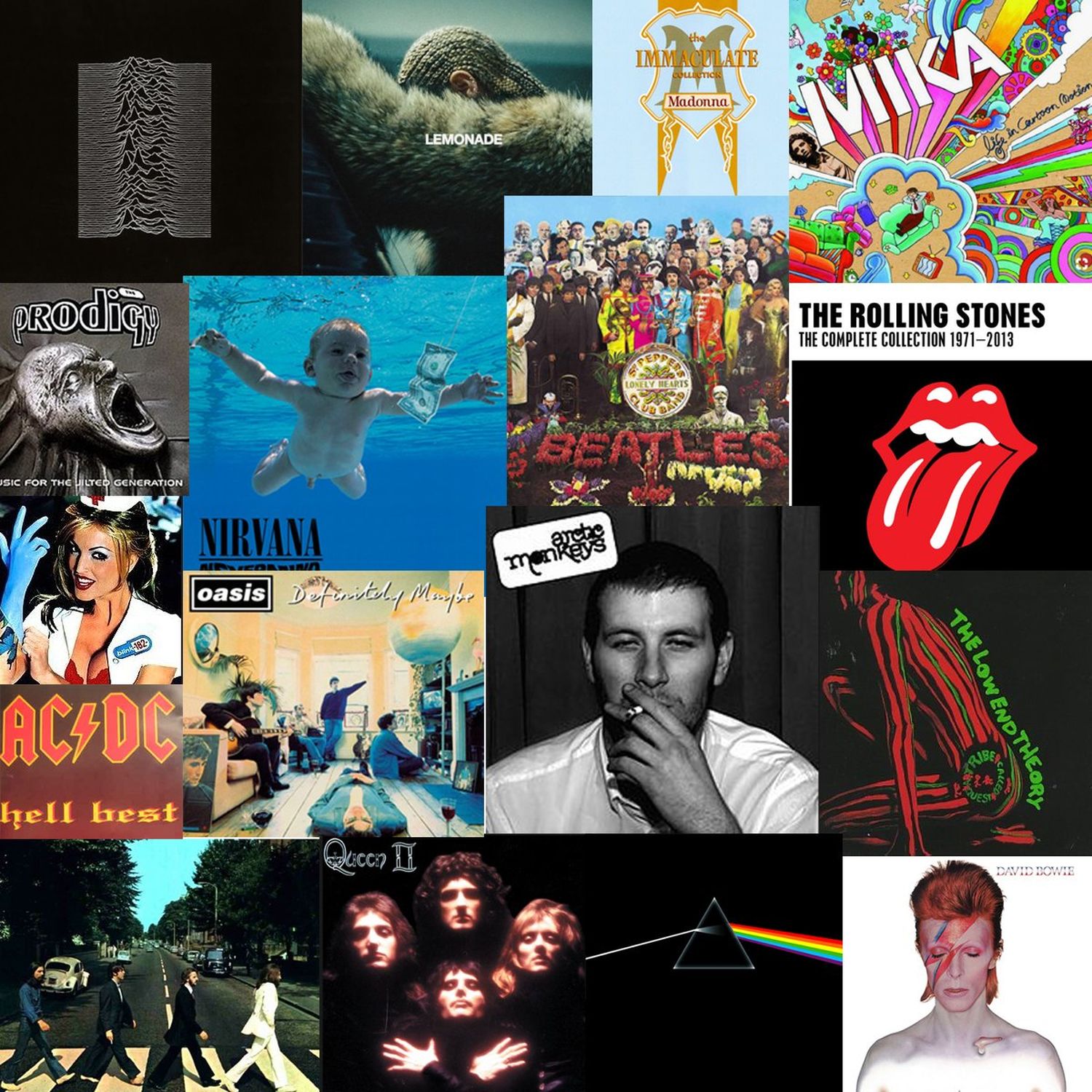Lessons in Lyricism
Maddy Fisher examines the best lyrics of recent years and how they resonate with her

While I have grown to appreciate the merits of good production and instrumentation, a vivid lyric is still often the element that draws me to a song. My identity as a lyric connoisseur, however, was somewhat shaken while researching for this article, as I realised I had brazenly misinterpreted many of my favourite tracks. This is nevertheless perhaps the sign of a great lyric, when a line has that beautiful universality that enables listeners to impose parts of their own personality and experience.
So, if you are looking for a hard-hitting lyric to jolt you from lockdown numbness, I suggest you read ahead, as I track the words that have shaped my rocky path of musical discovery.
‘I was happy in the haze of a drunken hour / But heaven knows I’m miserable now’.
– “Heaven Knows I’m Miserable Now” by The Smiths
Please don’t judge me for this opening lyric choice. It may help you to know that now, whenever I hear the opening chord of a Smiths song, I shudder and often have to leave the room before the flashbacks of my angsty 16-year-old existence become too vivid.
Teenage angst is characterised by a very individualising self-pity – that feeling that no one understands you. So, listening to a lyricist who shares these feelings that being drunk and having fun is only a temporary distraction from the mundanity of life (god, I must have been insufferable back then) is actually quite reassuring. Astonishingly, I naively managed to shelter myself from the sheer amount of racist vitriol that came (and still comes) from The Smiths’ frontman. Please rest assured that I have since educated myself, and am now an avid Morrissey-hater.
‘I’m Jay-Z on a bad day, Shakespeare on my worst days.’
–“Offence” by Little Simz
This, encapsulated here in a lyric, is the confidence I aspire to – and, given the consistently high quality of Little Simz’ third studio album GREY Area, this confidence is not unfounded. Of course, the art of the humble brag is common fare in rap, yet this line is more than that; Simz takes on the male titans that dominate the supposed peaks of both the musical genre she has entered into, and the cultural landscape of the country she lives in. Discovering Little Simz has been a highpoint in my musical exploration, opening me up to a range of new and provocative artists. I would take her accomplished lyricism over a Shakespeare play any day.
‘You are sick, and you’re married / And you might be dying / But you’re holding me like water in your hands.’
– “Moon Song” by Phoebe Bridgers
Phoebe Bridgers' 'Punisher' is DIY's Album of 2020 - to celebrate, we reflected with the singer on her second record, Grammy nominations, and the last year as a whole. https://t.co/2NeTGKhtTW @phoebe_bridgers pic.twitter.com/QYea5hBGY5
- DIY (@diymagazine) December 23, 2020
I do not know why these lyrics resound with me so deeply, since I have never been in a toxic relationship with a married man who is close to death. However, given Phoebe Bridger’s striking lyricism I feel like I might as well have been.
This is the climax of the agonising “Moon Song” from my favourite album of 2020, Punisher. Speaking on behalf of all the Pharbz (Phoebe Bridgers stans), this lyric just hits different. Water is a recurring image in the album, and here it is used to articulate the crushing feeling of being dependent on someone who cannot support you. Phoebe, I salute you.
‘Cheap office coffee / Is pumping through my veins / I work for the man, yeah / But you know I love the chains.’
– “Career Boy” by Dorian Electra
Name a more important piece of social commentary from the 21st Century, I’ll wait. Okay, so admittedly this song is meant to be a bit tongue-in-cheek, with Dorian taking on the character of the insufferable ‘Career Boy’. However, I’m not lying to you when I say that this song has been seriously influential in shaping my personal political philosophy.
It so deftly articulates the temptations, yet ultimate dissatisfaction, of the corporate world (something I am desperately trying to avoid thinking about, knowing I will have to enter the job market in a year’s time). By treating work as an addiction, Dorian perhaps presents us with the clearest illustration of false consciousness. The image of the oft-depicted alpha corporate breadwinner is subverted into a sad and submissive creep, married to his chains. Who needs Marx now, huh?
‘I should be crying, but I just can’t let it show I should be hoping, but I can’t stop thinking / Of all the things I should’ve said That I never said / All the things we should’ve done / Though we never did.’
– “This Woman’s Work” by Kate Bush
I’ve categorised this Kate Bush track in my ‘group of songs to listen to when I’m walking around Cambridge in the rain feeling the burden of womanhood’ (see also ‘Cellophane’ by FKA twigs and ‘Paper Bag’ by Fiona Apple). Feel free to steal this idea for your Spotify playlists, ladies! You may have noticed from my lyric choices so far, that a key theme I latch onto is yearning, and this song, with its desire to go back and make the most of past moments is yearning at its supreme. If, like me, you are in a constant state of agonising over memories you feel guilty about, this is likely to speak to you!
Call me a fake fan, but I hadn’t even realised that this song is actually from a man’s perspective as he watches his wife struggle through childbirth, rather contradicting the self-reflective divine feminine perspective I was imposing. This discovery actually makes the song a lot more devastating, something I definitely needed right now in the harshest days of winter lockdown. In all seriousness, however, Kate’s ability to articulate the helplessness of a husband when faced with tragedy so distinctly, really does solidify her genius status. So yes, men you can have this one, a song from your viewpoint, as a treat.
‘She came from Greece she had a thirst for knowledge / She studied sculpture at Saint Martin’s College / That’s where I Caught her eye.’
– “Common People” by Pulp
My attitude towards this song has been developed by my own life experiences through singing it during long roadtrips and as a karaoke duet at Selwyn’s Snowball (because nothing speaks to the working-class politics of this song like singing it at a Cambridge Ball!).
Additionally to this, the characters Jarvis Cocker imagines in this song feel so real. I know I have met a countless many of the London art-school girls he speaks of (yes, I’m a Cambridge student from London, we exist). Aside from all the comedic one-liners, “Common People” is illuminating in its illustration of the distanced and vicarious ways in which society picks and chooses certain elements of working-class culture to ‘enjoy’. Cocker’s ability to reflect starkly the UK’s classed reality, while retaining an anthemic, singalong quality is a lesson in exemplary lyricism. Looking back on my list, I notice that ‘genius’ lyrics are rarely overly clever or littered with flowery metaphor, but rather an attempt truly to reflect the writer’s perspective and experience. When it comes to masterful lyricism, it would appear that honesty is always the best policy.
 News / Right-wing billionaire Peter Thiel gives ‘antichrist’ lecture in Cambridge6 February 2026
News / Right-wing billionaire Peter Thiel gives ‘antichrist’ lecture in Cambridge6 February 2026 News / Cambridge students uncover possible execution pit9 February 2026
News / Cambridge students uncover possible execution pit9 February 2026 News / Epstein contacted Cambridge academics about research funding6 February 2026
News / Epstein contacted Cambridge academics about research funding6 February 2026 News / Man pleads guility to arson at Catz8 February 2026
News / Man pleads guility to arson at Catz8 February 2026 News / John’s duped into £10m overspend6 February 2026
News / John’s duped into £10m overspend6 February 2026









